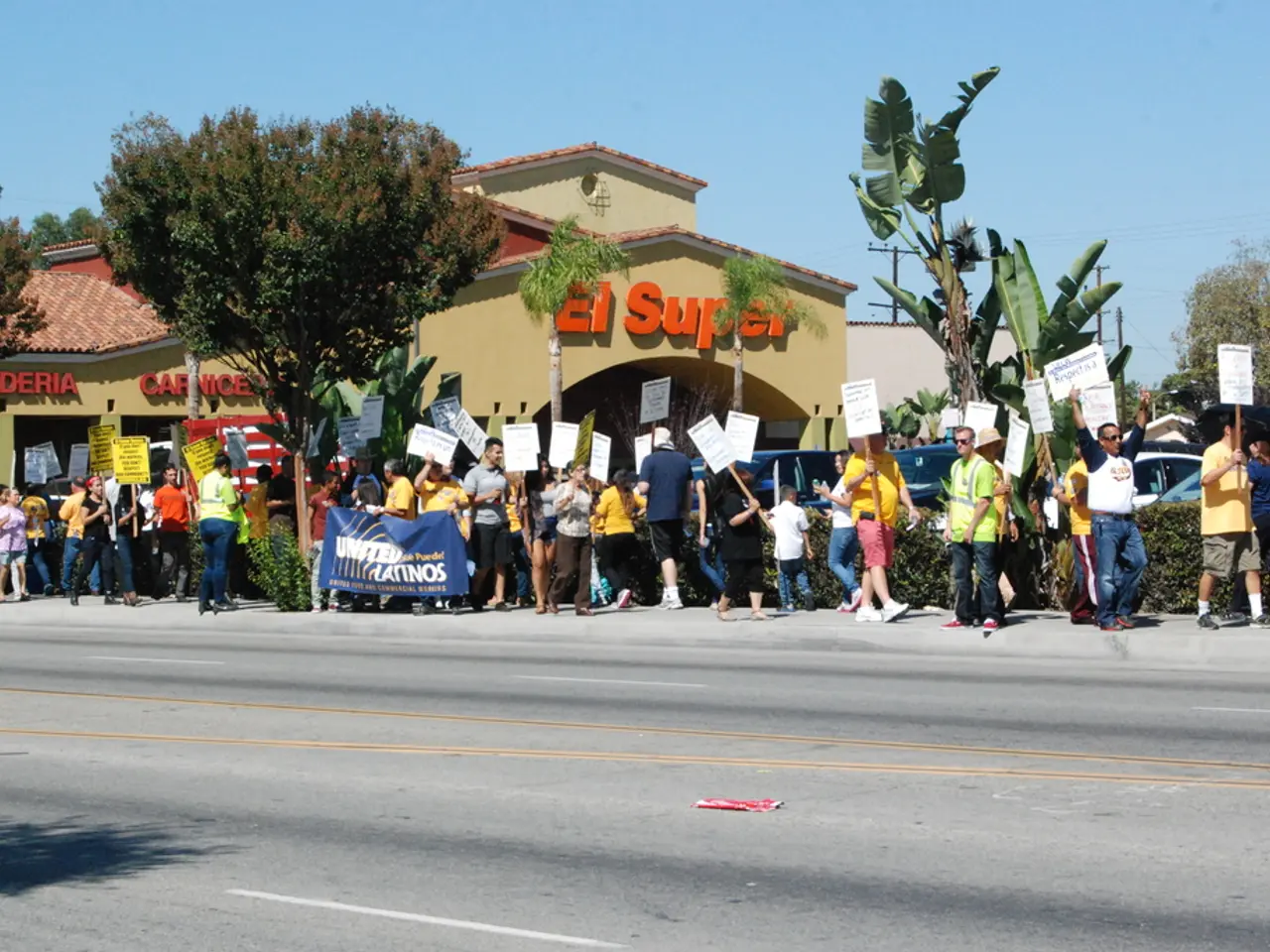Essential Predictive Analytics Models for Political Elections to Familiarize Yourself With
In the dynamic world of political campaigns, the use of predictive analytics has become a game-changer. These models help political entities better understand voter behaviour, allocate resources effectively, and ultimately, achieve better campaign outcomes.
Predictive Analytics Models in Political Campaigns
Commonly employed models include skill-based voter behaviour models, fundraising hurdle models, and AI-based voter response coders. These models leverage data-driven insights into voter preferences, candidate performance, and donor behaviour to improve targeting, fundraising, and campaign success.
Voteshare and Candidate Skill Models
These models estimate a candidate's probability of winning based on skill levels compared with opponents. By incorporating candidate-specific factors, they adjust confidence in predicted outcomes, particularly in close races, helping campaigns allocate resources strategically in competitive districts.
Fundraising Hurdle Models
Addressing missing or incomplete campaign finance data, these models predict both the likelihood of contribution data availability and actual fundraising amounts. This aids campaigns in identifying untapped fundraising opportunities and optimizing donor outreach, especially in noisy or incomplete datasets.
AI-Powered Models for Analyzing Unstructured Data
Using natural language processing tools, these models quickly code qualitative feedback from voter surveys into actionable insights. This accelerates understanding of voter issues and sentiment, enabling campaigns to tailor messaging and mobilization strategies effectively.
AI-Driven Donor Analysis Platforms
These tools clean and deduplicate complex contribution records, identify new donor segments, and generate AI-assisted bios for personalized outreach. They significantly improve fundraising efficiency by reducing manual research time and increasing conversion rates with targeted, scalable donor engagement.
Improving Campaign Outcomes
These predictive models enhance campaigns by improving voter targeting, boosting fundraising effectiveness, and optimizing overall campaign outcomes. By integrating voter analytics, fundraising intelligence, and advanced AI tools, they provide rapid insights for strategic decision-making, thereby maximizing resource allocation and electoral impact.
While emerging technologies like AI deepfakes are being explored, their direct role in improving predictive analytics for targeting and fundraising is still under study. The focus remains on leveraging structured and unstructured data through AI and statistical models to drive practical improvements in modern campaigns.
Additional Models
Other valuable models include the Voter Propensity Model, Electorate Model, Engagement Score Model, Candidate Choice Model, Win Probability Score Model, Voter Turnout Models, Support Propensity Models, Fundraising Model, Message Effectiveness Model, Issues Model, Microtargeting Model, Decision Tree Model, Issue Engagement Models, Incumbency Advantage Model, Swing Vote Model, Time Series Model, Psyops Model, Get-out-the-vote Model, Demographic Data Model, and Swing Vote Model.
These models further refine campaign strategies by predicting voter preferences, identifying potential voters, analysing demographics, and understanding voter engagement with specific issues. By leveraging these insights, political campaigns can optimize their efforts and achieve better results.
Read also:
- Andrew Stunell joins in celebrating equality with graduates from a pioneering mentorship program.
- Kamala Harris, the previously serving Vice President, announces her current politically-related choices- temporarily.
- U.S. Economic Trend: Insights on Stagflation and Potential Approach
- "Fear Prevails at the Smithsonian: A Look Within as Trump Criticizes Art and Historical Exhibits"








